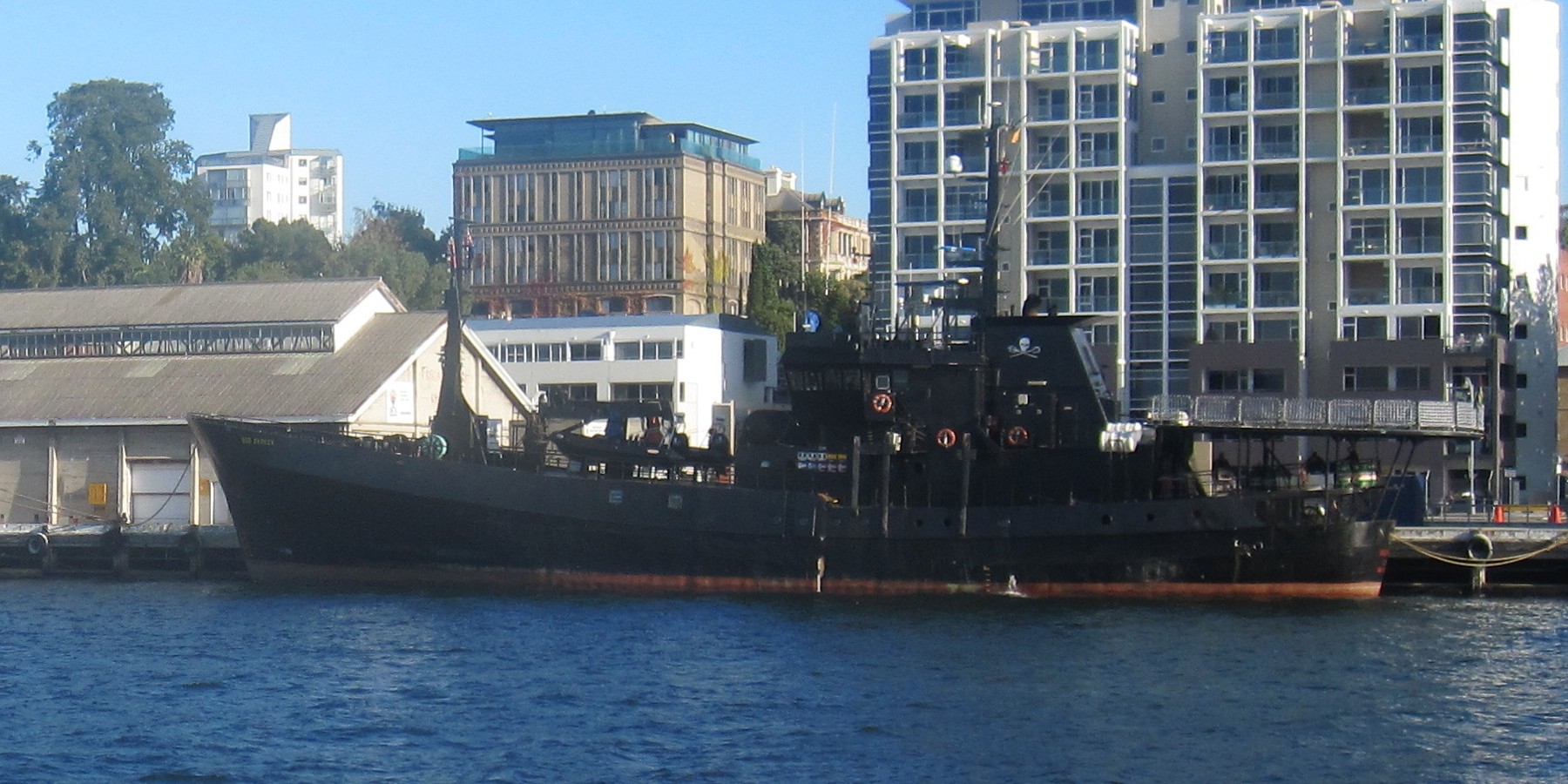|
Sea Shepherd I
''Sea Shepherd I'' was a former fishing trawler owned by the Sea Shepherd Conservation Society. She was British-registered and acquired in 1978 with a grant from the Fund for Animals. This was the first ship that the Sea Shepherd Conservation Society bought. Her major action was ramming into the whaler ''MV Sierra'' and she later was scuttled by the captain, Paul Watson Paul Franklin Watson (born December 2, 1950) is a Canadian-American conservation and environmental activist, who founded the Sea Shepherd Conservation Society, an anti-poaching and direct action group focused on marine conservation activism. Th .... References Sea Shepherd Conservation Society ships Scuttled vessels Maritime incidents in 1980 Shipwrecks of Portugal 1960 ships Ships built in England {{hunting-stub ... [...More Info...] [...Related Items...] OR: [Wikipedia] [Google] [Baidu] |
Sea Shepherd Conservation Society
The Sea Shepherd Conservation Society (SSCS) is a non-profit, marine conservation activism organization based in Friday Harbor on San Juan Island, Washington, in the United States. Sea Shepherd employs direct action tactics to achieve its goals, most famously by deploying its fleet of ships to track, report on and actively impede the work of fishing vessels believed to be engaged in illegal and unregulated activities causing the unsustainable exploitation of marine life. Sea Shepherd has been criticised by some environmental groups and national governments that oppose its tactics. The Japanese government, whose whaling industry is a leading target of the organization's efforts, has called Sea Shepherd eco-terrorists for "impeding their research". In March 2014, the International Court of Justice ruled that the Japanese whaling program was not for scientific purposes, as claimed, and ordered Japan to immediately cease its operation. History The predecessor organization of Se ... [...More Info...] [...Related Items...] OR: [Wikipedia] [Google] [Baidu] |
Fishing Trawler
A fishing trawler is a commercial fishing vessel designed to operate fishing trawls. Trawling is a method of fishing that involves actively dragging or pulling a trawl through the water behind one or more trawlers. Trawls are fishing nets that are pulled along the bottom of the sea or in midwater at a specified depth. A trawler may also operate two or more trawl nets simultaneously (double-rig and multi-rig). There are many variants of trawling gear. They vary according to local traditions, bottom conditions, and how large and powerful the trawling boats are. A trawling boat can be a small open boat with only 30 horsepower (22 kW) or a large factory ship with 10,000 horsepower (7457 kW). Trawl variants include beam trawls, large-opening midwater trawls, and large bottom trawls, such as "rock hoppers" that are rigged with heavy rubber wheels that let the net crawl over rocky bottom. History During the 17th century, the British developed the Dogger, an ea ... [...More Info...] [...Related Items...] OR: [Wikipedia] [Google] [Baidu] |
Fund For Animals
Cleveland Amory (September 2, 1917 – October 14, 1998) was an American author, reporter, television critic, commentator and animal rights activist. He originally was known for writing a series of popular books poking fun at the pretensions and customs of society, starting with ''The Proper Bostonians'' in 1947. From the 1950s through the 1990s, he had a long career as a reporter and writer for national magazines and as a television and radio commentator. In the late 1980s and 1990s, he was best known for his bestselling books about his adopted cat, Polar Bear, starting with '' The Cat Who Came for Christmas'' (1987). Amory devoted much of his life to promoting animal rights, particularly protection of animals from hunting and vivisection; the executive director of the Humane Society of the United States described Amory as "the founding father of the modern animal protection movement." Early life Amory was born September 2, 1917, into a privileged and established Boston Brahmin ... [...More Info...] [...Related Items...] OR: [Wikipedia] [Google] [Baidu] |
MV Sierra
MV may refer to: Businesses and organizations In transportation * Motor vessel, a motorized ship; used as a prefix for ship names * MV Agusta, a motorcycle manufacturer based in Cascina Costa, Italy * Armenian International Airways (IATA code MV) * Metropolitan-Vickers, an electrical equipment and vehicle manufacturer * Midland Valley Railroad, United States (reporting mark MV) Other organizations * Mieterverband, a Swiss tenant organization * Millennium Volunteers, a former UK government initiative * Minnesota Vikings, an American football team * Miss Venezuela, a beauty pageant * Museum Victoria, an organization which operates three major state-owned museums in Melbourne, Victoria, Australia Places * Martha's Vineyard, an island located south of Cape Cod in Massachusetts * Maldives (ISO 3166-1 alpha-2 country code MV) * Mecklenburg-Vorpommern, a German state at the Baltic Sea * Mountain View, a city in California, US People * M. Visvesvaraya, Indian engineer and statesman com ... [...More Info...] [...Related Items...] OR: [Wikipedia] [Google] [Baidu] |
Scuttling
Scuttling is the deliberate sinking of a ship. Scuttling may be performed to dispose of an abandoned, old, or captured vessel; to prevent the vessel from becoming a navigation hazard; as an act of self-destruction to prevent the ship from being captured by an enemy force (or, in the case of a vessel engaged in illegal activities, by the authorities); as a blockship to restrict navigation through a channel or within a harbor; to provide an artificial reef for divers and marine life; or to alter the flow of rivers. Notable historical examples Skuldelev ships (around 1070) The Skuldelev ships, five Viking ships, were sunk to prevent attacks from the sea on the Danish city of Roskilde. The scuttling blocked a major waterway, redirecting ships to a smaller one that required considerable local knowledge. Cog near Kampen (early 15th century) In 2012, a cog preserved from the keel up to the decks in the silt was discovered alongside two smaller vessels in the river IJssel i ... [...More Info...] [...Related Items...] OR: [Wikipedia] [Google] [Baidu] |
Paul Watson
Paul Franklin Watson (born December 2, 1950) is a Canadian-American conservation and environmental activist, who founded the Sea Shepherd Conservation Society, an anti-poaching and direct action group focused on marine conservation activism. The tactics used by Sea Shepherd have attracted opposition, with the group accused of eco-terrorism by both the Japanese government and Greenpeace. Watson is a citizen of Canada and the United States. The Toronto native joined a Sierra Club protest against nuclear testing in 1969. Because Watson argued for a strategy of direct action that conflicted with the Greenpeace interpretation of nonviolence, he was ousted from the board in 1977. However, Greenpeace has stated that Watson was an influential early member, but not one of the founders of Greenpeace. That same year, he formed the Sea Shepherd Conservation Society. The group was the subject of a reality show named ''Whale Wars''. He promotes veganism, population reduction and a biocen ... [...More Info...] [...Related Items...] OR: [Wikipedia] [Google] [Baidu] |
Sea Shepherd Conservation Society Ships
The sea, connected as the world ocean or simply the ocean, is the body of salty water that covers approximately 71% of the Earth's surface. The word sea is also used to denote second-order sections of the sea, such as the Mediterranean Sea, as well as certain large, entirely landlocked, saltwater lakes, such as the Caspian Sea. The sea moderates Earth's climate and has important roles in the water, carbon, and nitrogen cycles. Humans harnessing and studying the sea have been recorded since ancient times, and evidenced well into prehistory, while its modern scientific study is called oceanography. The most abundant solid dissolved in seawater is sodium chloride. The water also contains salts of magnesium, calcium, potassium, and mercury, amongst many other elements, some in minute concentrations. Salinity varies widely, being lower near the surface and the mouths of large rivers and higher in the depths of the ocean; however, the relative proportions of dissolve ... [...More Info...] [...Related Items...] OR: [Wikipedia] [Google] [Baidu] |
Scuttled Vessels
Scuttling is the deliberate sinking of a ship. Scuttling may be performed to dispose of an abandoned, old, or captured vessel; to prevent the vessel from becoming a navigation hazard; as an act of self-destruction to prevent the ship from being captured by an enemy force (or, in the case of a vessel engaged in illegal activities, by the authorities); as a blockship to restrict navigation through a channel or within a harbor; to provide an artificial reef for divers and marine life; or to alter the flow of rivers. Notable historical examples Skuldelev ships (around 1070) The Skuldelev ships, five Viking ships, were sunk to prevent attacks from the sea on the Danish city of Roskilde. The scuttling blocked a major waterway, redirecting ships to a smaller one that required considerable local knowledge. Cog near Kampen (early 15th century) In 2012, a cog preserved from the keel up to the decks in the silt was discovered alongside two smaller vessels in the river IJssel i ... [...More Info...] [...Related Items...] OR: [Wikipedia] [Google] [Baidu] |
Maritime Incidents In 1980
Maritime may refer to: Geography * Maritime Alps, a mountain range in the southwestern part of the Alps * Maritime Region, a region in Togo * Maritime Southeast Asia * The Maritimes, the Canadian provinces of Nova Scotia, New Brunswick, and Prince Edward Island * Maritime County, former county of Poland, existing from 1927 to 1939, and from 1945 to 1951 * Neustadt District, Reichsgau Danzig-West Prussia, known from 1939 to 1942 as ''Maritime District'', a former district of Reichsgau Danzig-West Prussia, Nazi Germany, from 1939 to 1945 * The Maritime Republics, thalassocratic city-states on the Italian peninsula during the Middle Ages Museums * Maritime Museum (Belize) * Maritime Museum (Macau), China * Maritime Museum (Malaysia) * Maritime Museum (Stockholm), Sweden Music * ''Maritime'' (album), a 2005 album by Minotaur Shock * Maritime (band), an American indie pop group * "The Maritimes" (song), a song on the 2005 album ''Boy-Cott-In the Industry'' by Classified * "Mar ... [...More Info...] [...Related Items...] OR: [Wikipedia] [Google] [Baidu] |
Shipwrecks Of Portugal
A shipwreck is the wreckage of a ship that is located either beached on land or sunken to the bottom of a body of water. Shipwrecking may be intentional or unintentional. Angela Croome reported in January 1999 that there were approximately three million shipwrecks worldwide (an estimate rapidly endorsed by UNESCO and other organizations). When a ship's crew has died or abandoned the ship, and the ship has remained adrift but unsunk, they are instead referred to as ghost ships. Types Historic wrecks are attractive to maritime archaeologists because they preserve historical information: for example, studying the wreck of revealed information about seafaring, warfare, and life in the 16th century. Military wrecks, caused by a skirmish at sea, are studied to find details about the historic event; they reveal much about the battle that occurred. Discoveries of treasure ships, often from the period of European colonisation, which sank in remote locations leaving few livin ... [...More Info...] [...Related Items...] OR: [Wikipedia] [Google] [Baidu] |
1960 Ships
Year 196 (Roman numerals, CXCVI) was a leap year starting on Thursday (link will display the full calendar) of the Julian calendar. At the time, it was known as the Year of the Consulship of Dexter and Messalla (or, less frequently, year 949 ''Ab urbe condita''). The denomination 196 for this year has been used since the early medieval period, when the Anno Domini calendar era became the prevalent method in Europe for naming years. Events By place Roman Empire * Emperor Septimius Severus attempts to assassinate Clodius Albinus but fails, causing Albinus to retaliate militarily. * Emperor Septimius Severus captures and sacks Byzantium; the city is rebuilt and regains its previous prosperity. * In order to assure the support of the Roman legion in Germany on his march to Ancient Rome, Rome, Clodius Albinus is declared Augustus (title), Augustus by his Roman army, army while crossing Gaul. * Hadrian's wall in Britannia, Britain is partially destroyed. China * First yea ... [...More Info...] [...Related Items...] OR: [Wikipedia] [Google] [Baidu] |






